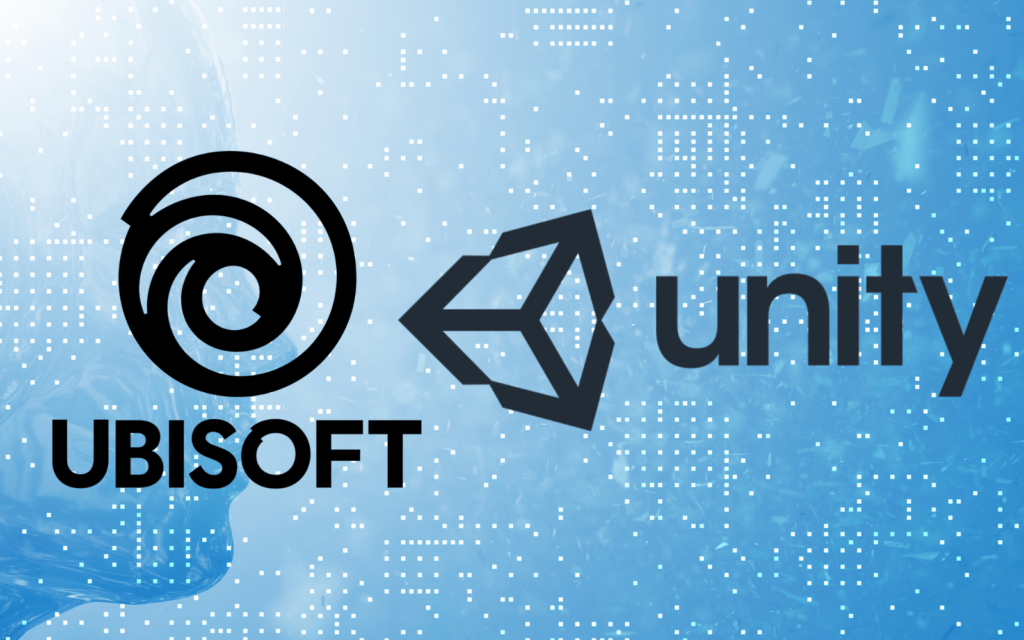2023 is the year of generative AI. Since ChatGPT’s launch in November, the world has been enamoured with the idea of automation, giving as many vague tasks to our soon-to-be robot overlords as possible and making them stronger by the day. First, AI conquered the art world. Then it tackled the business industry. It was only a matter of time before it began interfering with game development.
Two of videogaming’s most prominent entities – Unity and Ubisoft – have announced AI ‘tools’ designed to shorten the development progress significantly. ‘Unity AI’ is pitched as a marketplace for all facets of development – character creation, sound design, and dialogue. Ubisoft’s ‘Ghostwriter’ tool focuses solely on NPC dialogue, in the hopes of freeing up writers to focus on a game’s larger story aspects.
“Make them flying alien mushrooms”
Of the two, Unity AI seems to lean more on the side of ambitiousness. Rather than spending valuable time developing every aspect of a game, Unity wants creators to use the marketplace to auto-generate code or create new assets on the fly. “Add two seconds of thunder” or “Add a dozen NPCs… make them flying mushrooms” are two examples of how user prompts will be used to further development.
“In every video game in history, the dialogue was written by somebody,” says Unity CEO John Riccitiello in an interview with Reuters. “But now what you can do with (generative AI) is give these characters motivation, personality, and objectives and then they can spawn dialogue that doesn’t require a writer.”
Unfortunately, Unity wasn’t quite so eager to show off the marketplace in action. A vague teaser and big promises are all that was revealed, with no release date on the horizon. Interested developers can placate themselves with the beta program which can be signed up for here. There’s no guarantee you’ll get in, but there’s no harm in trying, right?
Eminem been real quiet
Writing NPC dialogue is hard. Writing good NPC dialogue is even harder. It’s also, according to game developers, an arduous process that could be better spent on a game’s main story. NPC dialogue comes in the form of “barks” with each bark being manually written and added to a game to improve the overall immersion of a game. Ubisoft’s Ghostwriter is looking to dramatically change that process.
The tool, developed by Ubisoft’s R&D department La Forge and created by Ben Swanson, was announced at this year’s Game Development Conference.
Read More: Bard, Bing and Baidu: how big tech’s AI race will transform search – and all of computing
Ghostwriter isn’t looking to replace writers entirely. The big idea is to save time. Developers input character traits and the type of interaction they desire, with Ghostwriter spitting out two varying rough drafts of NPC barks. Developers choose which they prefer and edit them to get the desired effect, in turn training the AI to offer up better barks that suit a character more.
The tool is still in its early stages, with the biggest issue facing Ghostwriter being its lack of use. In a bid to make the product more appealing, the team included ‘Ernestine’ “which allows anyone to create their own machine learning models used in Ghostwriter.” As long as we don’t get another dumpster fire as we did with Watchdogs: Legion, any form of AI development is welcome in our books.
What either of these tools will look like in the future is a scary thought. Neither Ubisoft nor Unity will be the last to develop some sort of artificial intelligence tool to help build games faster. As we speak, game companies are lifting their heads, sniffing the air – scoping the landscape to see how their AI could be the one to change it. We reckon the game development space could look mightily different in just a few short years. Once EA figures out how to hand the reins of its varying sporting titles to AI entirely, we’re done for.



